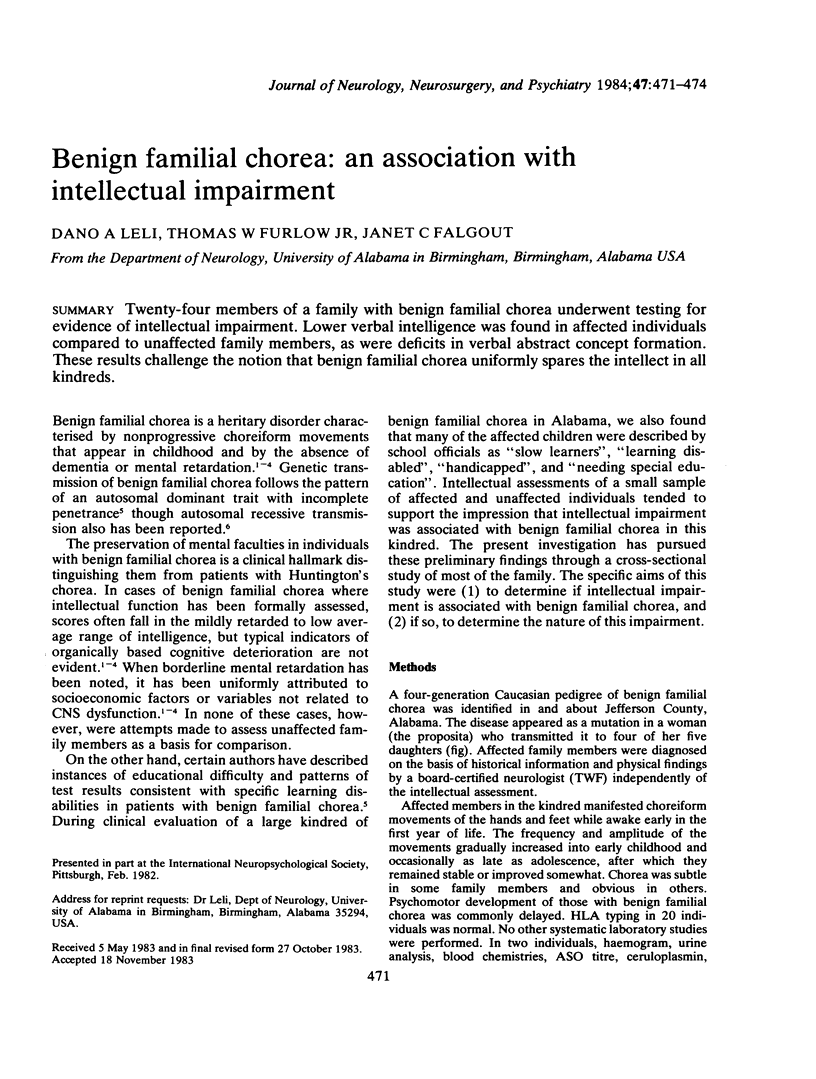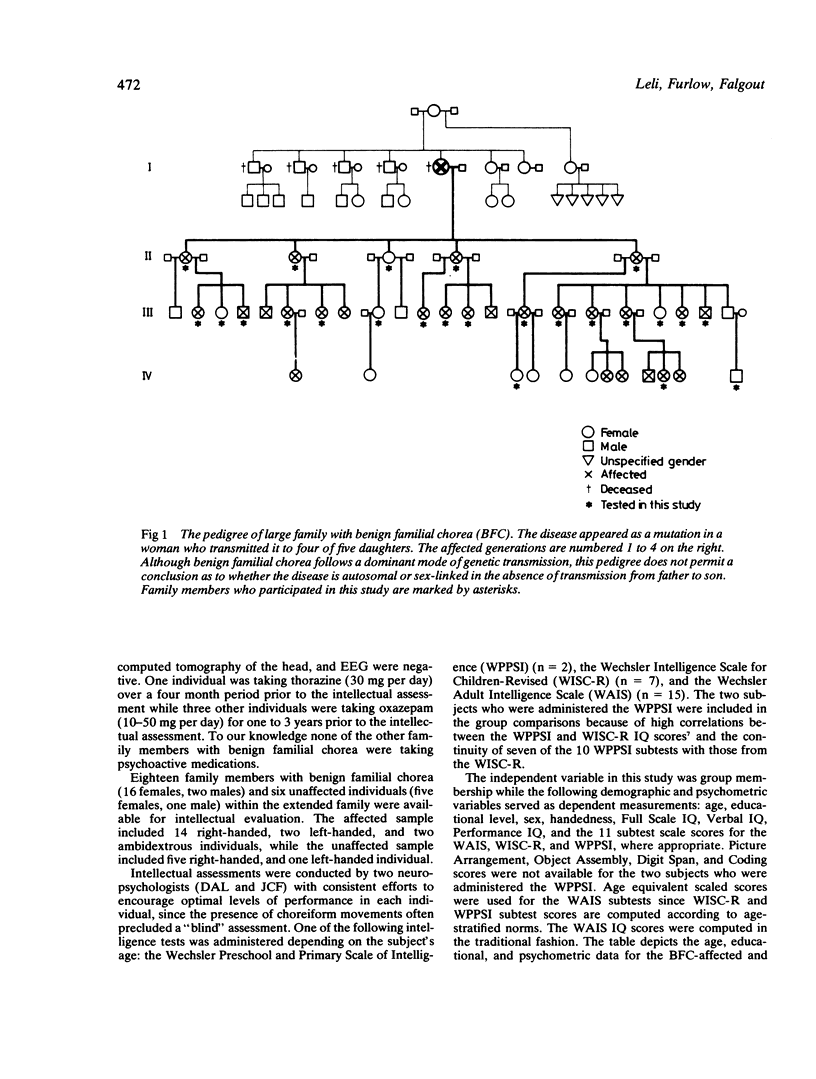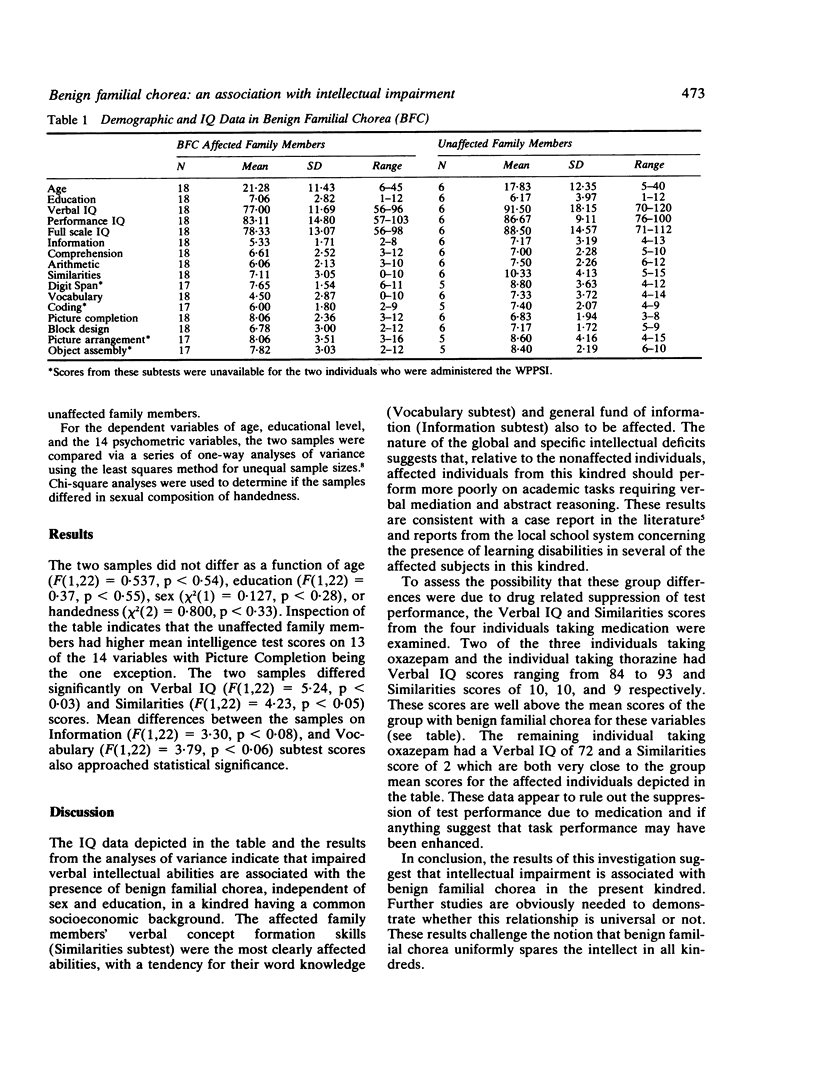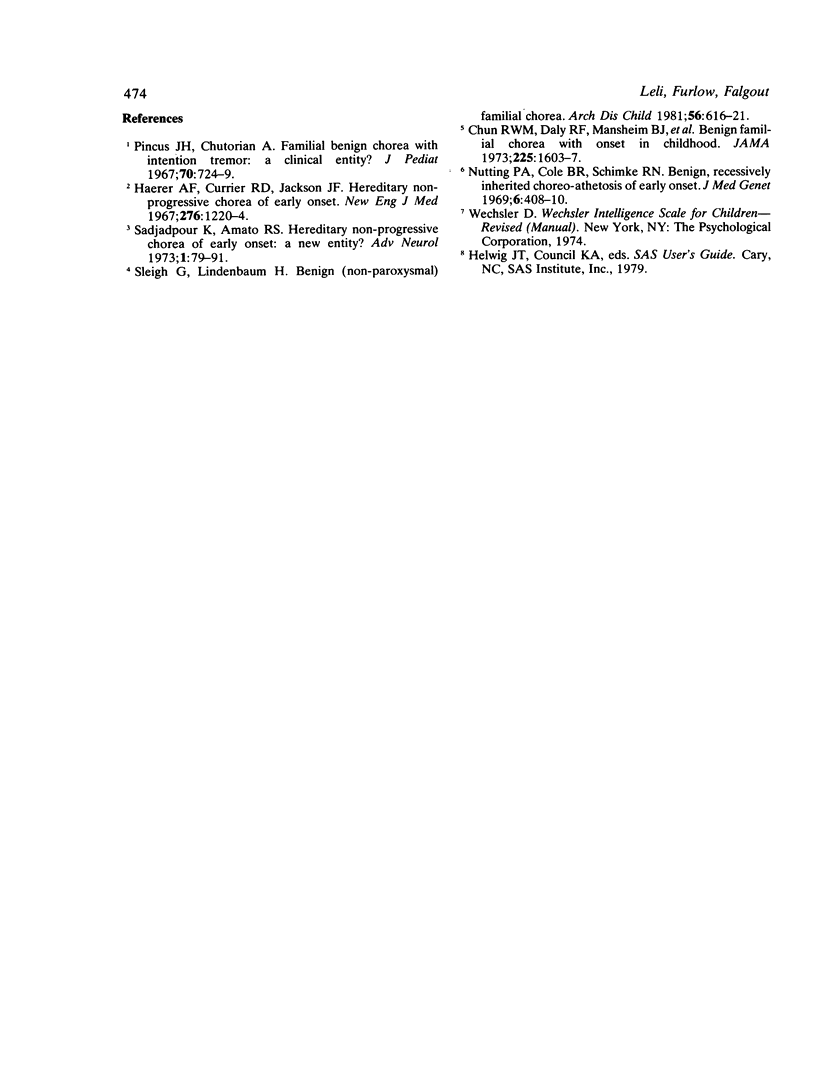Abstract
Twenty-four members of a family with benign familial chorea underwent testing for evidence of intellectual impairment. Lower verbal intelligence was found in affected individuals compared to unaffected family members, as were deficits in verbal abstract concept formation. These results challenge the notion that benign familial chorea uniformly spares the intellect in all kindreds.
Full text
PDF



Selected References
These references are in PubMed. This may not be the complete list of references from this article.
- Chun R. W., Daly R. F., Mansheim B. J., Jr, Wolcott G. J. Benign familial chorea with onset in childhood. JAMA. 1973 Sep 24;225(13):1603–1607. [PubMed] [Google Scholar]
- Haerer A. F., Currier R. D., Jackson J. F. Hereditary nonprogressive chorea of early onset. N Engl J Med. 1967 Jun 1;276(22):1220–1224. doi: 10.1056/NEJM196706012762202. [DOI] [PubMed] [Google Scholar]
- Nutting P. A., Cole B. R., Schimke R. N. Benign, recessively inherited choreo-athetosis of early onset. J Med Genet. 1969 Dec;6(4):408–410. doi: 10.1136/jmg.6.4.408. [DOI] [PMC free article] [PubMed] [Google Scholar]
- Pincus J. H., Chutorian A. Familial benign chorea with intention tremor: a clinical entity. J Pediatr. 1967 May;70(5):724–729. doi: 10.1016/s0022-3476(67)80322-6. [DOI] [PubMed] [Google Scholar]
- Sleigh G., Lindenbaum R. H. Benign (non-paroxysmal) familial chorea. Paediatric perspectives. Arch Dis Child. 1981 Aug;56(8):616–621. doi: 10.1136/adc.56.8.616. [DOI] [PMC free article] [PubMed] [Google Scholar]


